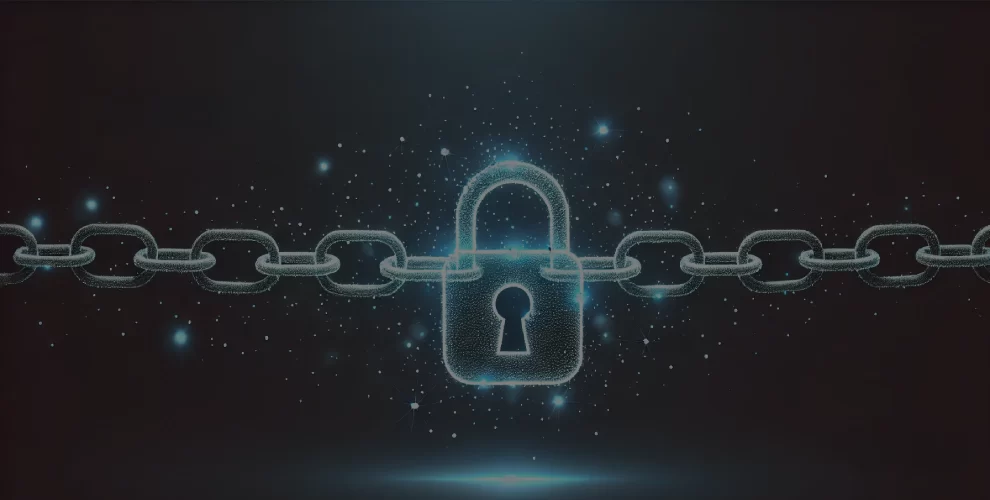
Top 10 Benefits of Using Blockchain Technology for Secure Transactions
Table of Contents
Introduction
Welcome to WikiGlitz! Today let us look into the top 10 Benefits of Using Blockchain Technology for Secure Transactions
Whether you’re in finance, healthcare, supply chain, or any other industry, understanding the benefits of blockchain can help you leverage this technology for better outcomes.
In this guide, we’ll explore the top 10 benefits of using blockchain technology for secure transactions.
Key Takeaways
- Enhanced Security: It ensures secure transactions.
- Increased Transparency: Blockchain provides a transparent and immutable ledger, enhancing trust among parties.
- Operational Efficiency: Blockchain streamlines processes, reducing costs and improving transaction speed.
Enhanced Security
Traditional systems are often centralized, making them vulnerable to hacks and unauthorized access. Blockchain, on the other hand, is decentralized and uses advanced cryptographic techniques to secure data.
- Decentralized Structure: Data is distributed across multiple nodes, eliminating single points of failure.
- Cryptographic Security: Transactions are encrypted, ensuring that they cannot be altered or tampered with.
- Immutable Records: Once a transaction is recorded on the blockchain, it cannot be changed or deleted, providing a permanent and tamper-proof record.
Increased Transparency
Blockchain’s transparency is one of its most valuable features.
- Public Ledger: All transactions are recorded on a shared ledger that is visible to all participants.
- Real-Time Access: Participants can access transaction data in real-time, ensuring that everyone has the same information.
- Auditability: Blockchain provides an immutable and time-stamped record of all transactions, making it easy to audit and verify data.
Improved Traceability
Blockchain enhances traceability by providing a transparent and immutable record of transactions.
This is particularly beneficial in industries like supply chain and logistics, where tracking the provenance of goods is crucial.
- End-to-End Traceability: Blockchain allows for tracking the entire journey of goods from origin to destination.
- Authenticity Verification: Ensures that products are genuine and have not been tampered with.
- Fraud Prevention: Reduces the risk of counterfeit goods and fraudulent transactions.
Reduced Costs
Blockchain can significantly reduce costs by eliminating intermediaries and streamlining processes.
Traditional transactions often involve third parties such as banks, brokers, and payment processors, which can be expensive and time-consuming.
- Efficiency Gains: Automated processes and reduced paperwork lower operational costs.
- Cost Savings: Financial institutions and businesses can save money on transaction fees and administrative expenses.
Faster Transactions
Blockchain technology enables faster transactions by eliminating the need for intermediaries and reducing the time required for processing.
- Instant Settlements: Transactions can be settled in minutes, rather than days or weeks.
- Automated Processes: Smart contracts automate and speed up transaction execution.
- Global Reach: Blockchain enables fast cross-border transactions, bypassing traditional banking delays.
Enhanced Privacy
While blockchain is transparent, it also offers enhanced privacy features.
Users can remain anonymous, and sensitive information can be protected through encryption and permissioned access.
- Encrypted Data: Sensitive data is encrypted, protecting it from unauthorized access.
- Permissioned Access: Only authorized parties can access specific data, ensuring privacy and security.
Immutability
Immutability is a key feature of blockchain technology.
- Permanent Records: Transactions are permanently recorded and cannot be changed.
- Time-Stamped Transactions: Each transaction is time-stamped, providing a chronological record.
- Data Integrity: Ensures that data is accurate and reliable, reducing the risk of errors and fraud.
Decentralization
This decentralization enhances security and trust among participants.
- Distributed Network: Data is stored across multiple nodes, reducing the risk of centralized attacks.
- No Single Point of Failure: The decentralized nature eliminates single points of failure, enhancing system resilience.
- Trustless Environment: Participants do not need to trust a central authority, as trust is built into the system.
Tokenization
Tokenization involves converting physical or digital assets into digital tokens that can be traded on a blockchain.
This process provides liquidity and enables fractional ownership of assets.
- Digital Assets: Physical assets like real estate can be tokenized and traded digitally.
- Fractional Ownership: Investors can own a fraction of an asset, increasing accessibility.
- Liquidity: Tokenization provides liquidity to traditionally illiquid assets, enabling easier buying and selling.
Innovation and New Business Models
Blockchain technology is driving innovation and enabling new business models across various industries.
From decentralized finance (DeFi) to non-fungible tokens (NFTs), blockchain is opening up new possibilities.
- Decentralized Finance (DeFi): DeFi platforms offer financial services without traditional intermediaries.
- Non-Fungible Tokens (NFTs): NFTs are unique digital assets that represent ownership of digital or physical items.
- Smart Contracts: Automated contracts that execute when predefined conditions are met, enabling new business models and reducing the need for intermediaries.
Conclusion
Blockchain Technology offers numerous benefits for secure transactions, including enhanced security, increased transparency, improved traceability, and reduced costs.
Its applications span various industries, driving innovation and enabling new business models. As blockchain technology continues to evolve, its impact on secure transactions will only grow stronger.
Stay tuned with WikiGlitz for more insights and updates on blockchain and other groundbreaking technologies!
FAQs
How does blockchain enhance security?
Blockchain’s cryptographic nature and decentralized structure make it highly secure, preventing unauthorized access and tampering.
What are the benefits of blockchain for supply chain management?
Blockchain improves traceability, reduces fraud, and enhances efficiency by providing a transparent and immutable record of transactions.
How does blockchain reduce costs?
By eliminating intermediaries and streamlining processes, blockchain reduces transaction fees and administrative expenses.
What is tokenization in blockchain?
Tokenization is the process of converting physical or digital assets into digital tokens that can be traded on a blockchain, providing liquidity and enabling fractional ownership.
Want to keep up with our blog?
Our most valuable tips right inside your inbox, once per month.
Error: Contact form not found.
WikiGlitz Team
Welcome to WikiGlitz, your ultimate destination for tech insights and innovation. Our expert team is dedicated to delivering free resources and professional advice on various technology topics, including Artificial Intelligence, Cyber Security, Cloud Computing, and more. We strive to empower our readers with up-to-date information and practical guidance, ensuring you stay ahead in the rapidly evolving tech landscape. At WikiGlitz, we are passionate about making complex technology accessible to everyone. Our team of seasoned experts curates content that is both informative and engaging, helping you understand and leverage the latest tech trends. Whether you're a tech enthusiast or a professional, WikiGlitz is your go-to source for reliable, expert-driven content. Join us on this journey to explore and embrace the future of technology.





